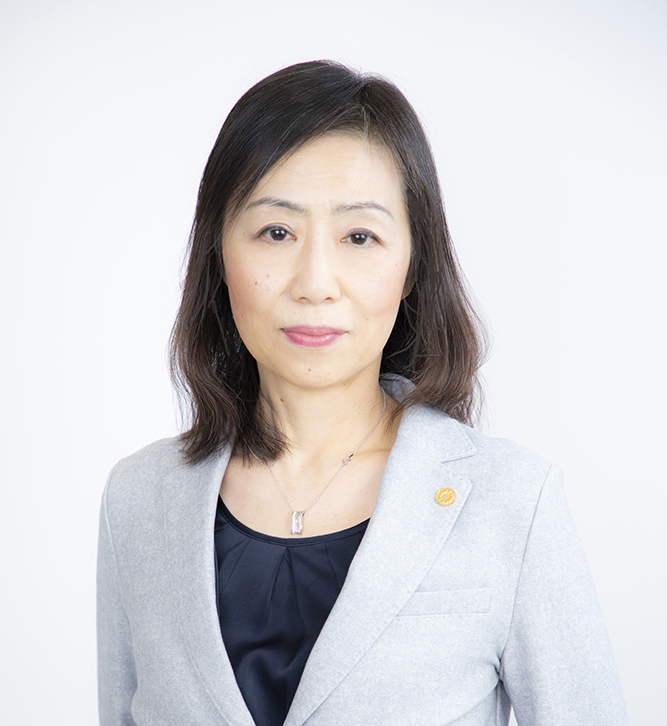Tokyo District Startup Plan – Program to increase foreign entrepreneurs
Based on the Cabinet Office’s Plan to Promote Foreign Entrepreneurial Activities in National Strategic Special Zones, special treatment is being provided for accepting foreigners in Japan’s special zones. I happened to be asked by a Sri Lankan agent (who communicates in English and speaks the local language with his clients) to help his clients start businesses in Japan under this scheme, and I started helping him two years ago, and am currently involved with his third clients’ project. I try to explain how this plan differs from the usual process, and when it is suitable or not suitable .
1. Tokyo Metropolitan Government startup plan for foreigners
Tokyo and other districts’ special zones are basically based their projects on plans from the Cabinet Office , so I think the scheme itself is probably the same, but since I have only worked with Tokyo Program, I will explain using Tokyo program as an example .
Foreigners who wish to establish a company here and reside in Japan need to obtain the “Business Manager” status of residence. The minimum conditions for obtaining Business Manager status are: 1. More than JPY 5M Capital, and 2. Having secured space in Japan to use as an office (separate from the place of residence, or a completely independent space even if it is at the same address as the place of residence). (There are other conditions as well, but for details, please refer to my previous blog ” About Business Manager Status of Residence “.) The documents to be submitted to the Immigration Bureau for Business Manager Status include the office lease contract or property registration certificate, the company register, the corporate number, and documents when the business start-up notification was submitted to the tax bureau, which means that the company needs to be established before coming to Japan. There exists a four-month period of stay for business manager permission, but even if you apply with this as your itention, the immigration bureau will not relax the requirements for business manager status, and since a residence application is basically applied for by the person himself or someone employed by the company, you cannot hire someone without existing a company, so in the end, you will need to “come to Japan as short-term visitor to set up a company and / or apply for residence without having residence status yet.”
If you use the Tokyo Metropolitan Government’s scheme, you submit a business plan to the Tokyo Metropolitan Government first, and if it is approved, you will receive a letter of recommendation from the Tokyo Metropolitan Government, known as a Certificate of Entrepreneurial Drive. If you apply for a “business manager” status, along with your plan and letter of recommendation, you will be granted six months of residence. A Gyosei Shoshi can apply for residence on your behalf (more details to follow). During the six months, you can submit an office contract, company establishment, business start-up notification to the tax office, etc., and apply for renewal of the same residence status before your residence is expired . In essence, you can obtain residence status before you establish a company, so you can start up your business with only one time entry into Japan .

2. Disadvantages of using the above scheme
a. You need a detailed business plan from the beginning
All the templates for documents to be submitted to the Tokyo Metropolitan Government can be downloaded from the link above, but as you can see the business plan template, you have to fill out all of them. The purpose of the company, personal CV, a schedule including the number of months since the company was established even though it is not clear how long it will take to get permission, a six-month financial plan, etc. If you can write a business plan up to this point in advance, you should be able to apply & obtain the business manager status without a recommendation from the Tokyo Metropolitan Government after the establishment of your company. Also, the financial plan table in this plan is in Word format, not Excel, so you have to enter the calculations manually. I have been asking for changing to Excel format from Word since the past year, but there is no sign of it changing, which is really frustrating.
b. Language Issues
The Tokyo Metropolitan Government links are consist of both in Japanese and in English language, and the English links are in the same order and the same explanations as the Japanese ones (as an aside, I hope they will improve the Immigration Bureau’s link for residence application and qualifications, as the required documents checklist suddenly becomes Japanese soon). It is helpful for foreigners who do not understand Japanese at all. However, when it comes to the submission all the documents should be written in Japanese, and Japanese translations must be attached to English documents, and questions about plans and other matters after submission are in Japanese, so in the end I have no choice but to translate them into English and explain them to foreign clients, or if it would be better for me to correct them myself rather than explain them, I end up correcting them myself. It takes a tremendous time consuming for me, including the communication with Agent. I wish it was possible to go all the way to the end in English alone. Typically, even if the foreigners can understand Japanese conversation to a certain extent, I don’t think there are many can read and write Japanese, especially Chinese characters.
c. The actual process and involved external professionals
Once you set up all the necessary documents, you send them to the Business Concierge in Akasaka by email, and when they accept them all, you print them out and bring them to Akasaka (it’s not eco-friendly, and I heard from the person in charge that they have made foreigners come to Japan just for this outdated procedure, so I thought the normal method would be quicker). The documents are then sent to the Tokyo Metropolitan Government, where the plan is checked in detail, and the official explanation in the above link stated that it takes about a month for the inspection. However, in reality, the people at the Business Concierge check the contents of the business plan in detail, and the standards for revision requests vary from person to person, so last time, depending on the person. In my experience, when I revised it and sent it according to one person, I received another request for revision, and both I and the agent were too busy to respond to the revision requests immediately, so it took three months for the plan submission until the final OK to submit them to the Tokyo Metropolitan Government .
It seems that the Tokyo Metropolitan Government has given them a checklist for the documents, and from the explanation in the link, it should mainly be a check on how the documents are written under the rules, but I have also heard comments that go into the contents of the plan. I was stunned when the person who checked it once asked me to “add a competitive analysis,” because the scheme is to have a company established in Japan buy second-hand goods and sell them to his company in his home country, so no competitors for him exists in Japan other than his company. Also, after the documents were circulated to Tokyo, we had an outside person analyze the business plan, and that person pointed oddly that “Japanese products are expensive, so even if the company exports them, won’t them lose in price competition locally?” I couldn’t help but ask him back, “Why do you think the prices are high?” I don’t understand the meaning of the question, “Will it lose in price competition?” in an era when the Japanese yen has been depreciating and people from all over the world are flocking to Japan to buy cheap goods, and when they are second-hand goods (and it is commonly known that the prices drop significantly when they become second-hand). Not only this person, but also the questions asked to entrepreneur by outsiders who came to interview at a previous stage in the process seemed to show prejudice against Southeast Asian countries, and I had to follow up this entrepreneur on this later .
I understand that local government employees alone cannot run this program without relying on outside help, but when it comes to hiring outside personnel, I want the city to check more carefully the quality of such members.
3. Usual Startup Scheme
Here I will write the process of “company establishment → residence application → permission and permit” that I usually do when I receive a request via this website. When I am called upon to do these three things by a foreigner overseas, I recommend that a Japanese acquaintance should be CEO of the company (because a foreigner will be required by the bank when openning a company account, a residence certificate, a resident card, and its My Number card, and it takes more than two months to obtain the cards, and the residence application needs to be signed by someone living or staying in Japan), and that the CEO will be changed after the residence is obtained. However, even if there is no Japanese person, it is possible to establish a company without the person coming to Japan if the identity verification for the articles of incorporation is done by signature authentication, and when the capital is paid to Japan for the company establishment, the person uses my lawyer’s trust bank account. After the company is established, an application for “Business Manager” status for the foreigner is made, and it takes at least three weeks (as I experienced this is exceptionally fast), usually four or five months, for the permission to be issued. However, at least one year term of residence can be obtained on this process. On the other hand, selling point of the special zone scheme is that six-month residence permits can be issued before a company is established. However, even obtaining a six-month residence period and after the incorporation, banks in Japan often refuse to allow foreign nationals to open accounts or they are unable to sign contracts with business partners, meaning business does not proceed smoothly.
As mentioned above, in the normal process, if there is no Japanese person involved as a representative director or employee, you have to have them come to Japan when I apply for the residence form and ask you tosign the application form, and I must submit the application for to the immigration bureau while you staying in Japan (as of the time of writing, immigration does not approve of Gyosei Shoshi not only submitting applications but also acting as representatives), so you will need time and money for visiting Japan once before your residence permit is issued. If you use the Tokyo Metropolitan Government’s program, you can avoid this hassle, but the process may take long time, and there is a possibility that the start of your business in Japan will be delayed, and you will have to pay me a fee to submit the plan. So insted you will pay the fee for submission of the docs to Tokyo Gov., you can come to Japan for that amount, and it may be faster and cheaper when you use the normal route .
4. Summary
Whether to use the special zone’s business or proceed in the normal way will be case by case. If you are interested in starting up in Japan, please contact us here .


 Ishibashi Legal Office
Ishibashi Legal Office